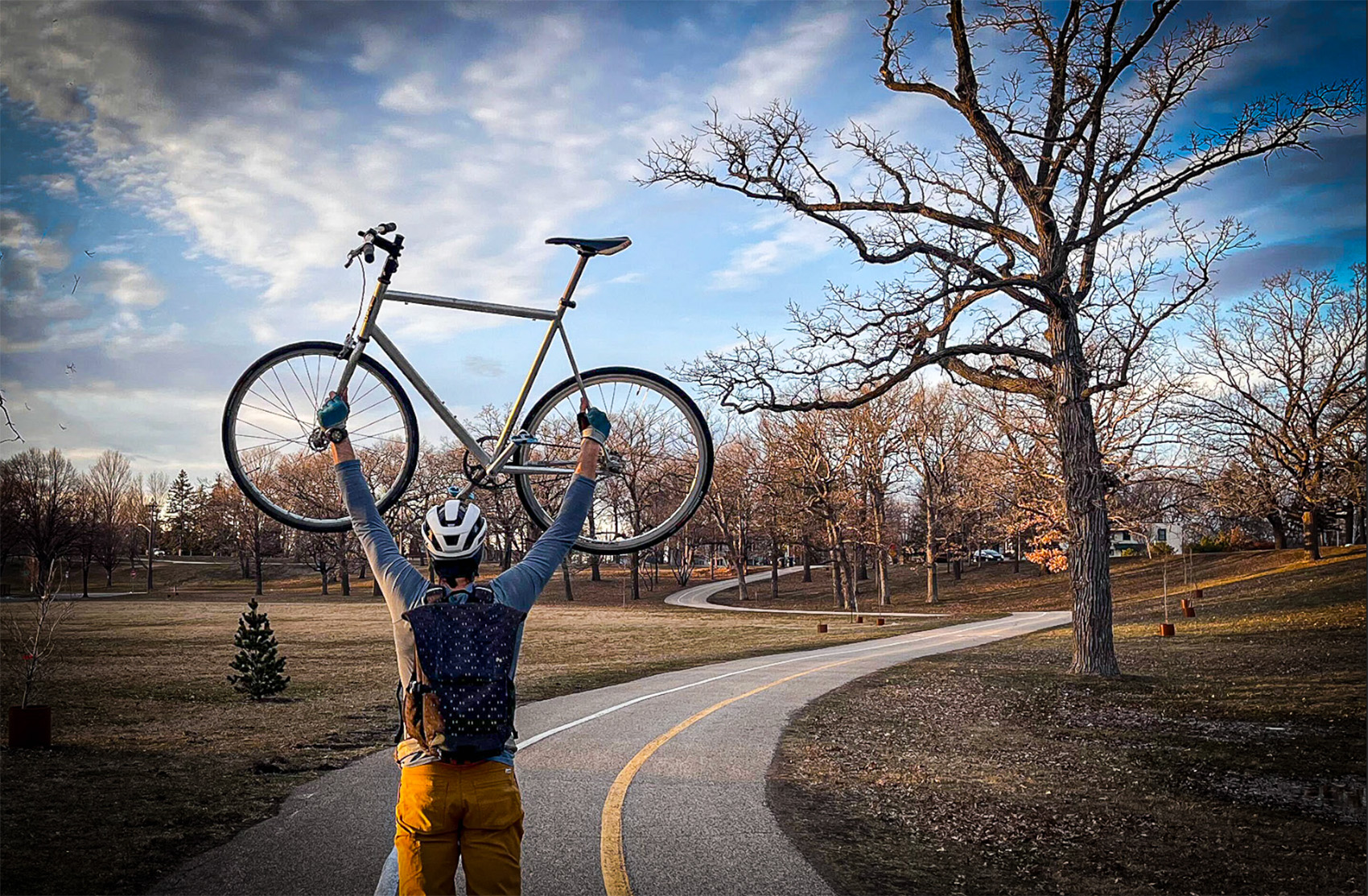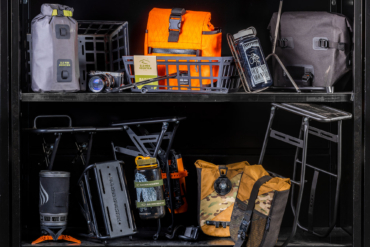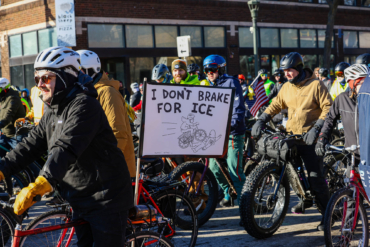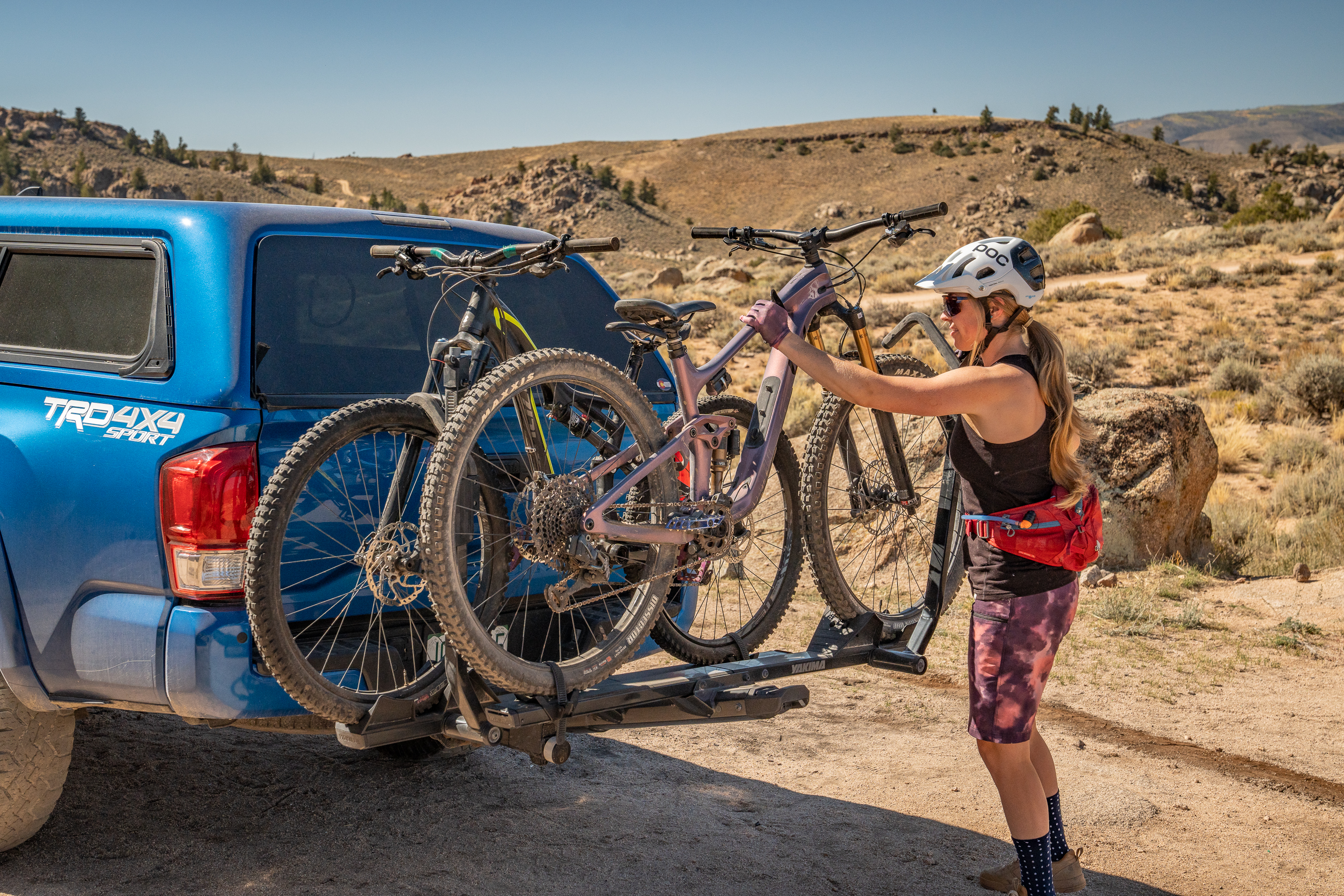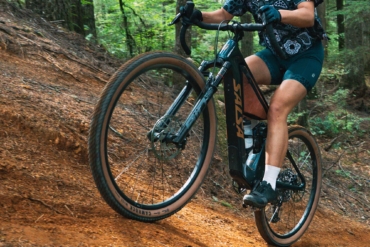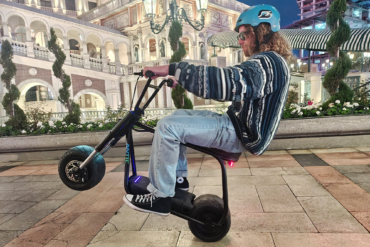There’s nothing like having $400 in cash in your pocket to help you understand the importance of studying self-defense. I’d just withdrawn more $20 bills than I’d ever held at one time and was now pedaling a public “Nice Ride” bike through Minneapolis, doing my best impression of someone who was totally not carrying $400 in their pants pocket.
It was late spring and warm enough to ride in a T-shirt and shorts, though I suddenly wished I’d opted for cargo pants or at least a jacket with zippered pockets. Adding to my anxiety was the fact that I had just agreed to meet someone from Craigslist for the first time — at a location of their choosing.
In my mind, the odds that they were interested in selling me the bike they’d posted versus murdering me and dumping my body in a dumpster for my $400 shifted more and more with each passing block.
But I pressed on. If nothing else, impelled by my Midwestern obligation to fulfill my end of the bargain, be it the agreed-upon deal or my untimely demise.
My First Fixie
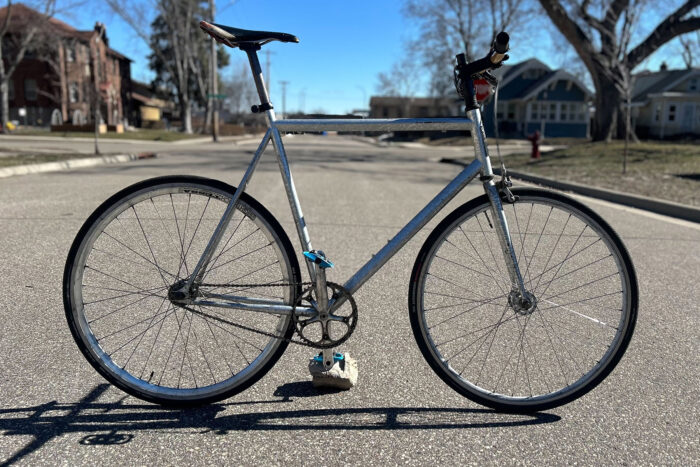
For a brief moment, I was sure I’d made a fatal mistake. Wayne, the man who’d agreed to sell me his 62cm Swobo Sanchez fixed gear, towered above me. At 6’3″, I’m not small, but he was at least 6’5″ — which he claimed was the main reason he wanted to sell the nearly new bike.
But when he led me around the side of his ivy-covered home and invited me into his backyard’s sagging gray cedar shed, I considered calling the whole thing off — nothing good happens in a shed.
But, eager to be free of carrying around this $400 burden, I rolled the dice and stepped in. A momentary wave of pure horror at the sight of chainsaws, axes, and a variety of sharp, rusty farm implements lined along the wall gave way to dazzling desire. The most beautiful bike I’d ever seen was parked next to a workbench.
Now defunct, Swobo began as an urban lifestyle brand in Santa Cruz, Calif. The Sanchez was a standout among its middle-of-the-road bikes, if not for its track-legal racing geometry, then for its wildly unique galvanized finish.
Silver and speckled gray, the Swobo was as pretty a thing as I’d ever laid eyes on, and I was only too happy to pay for it. I handed Wayne the cash-stuffed envelope and rode my new bike home — by all important measures, the happiest man on Earth for those few miles.
What I could not have known then — what I know now — was that my decision to purchase that bike ranks among the most important decisions of my life. And while my cheap fixie is no better or superior to more expensive, modern machines, I would argue it’s a great deal more valuable.
The Joy of Riding a Cheap Fixie
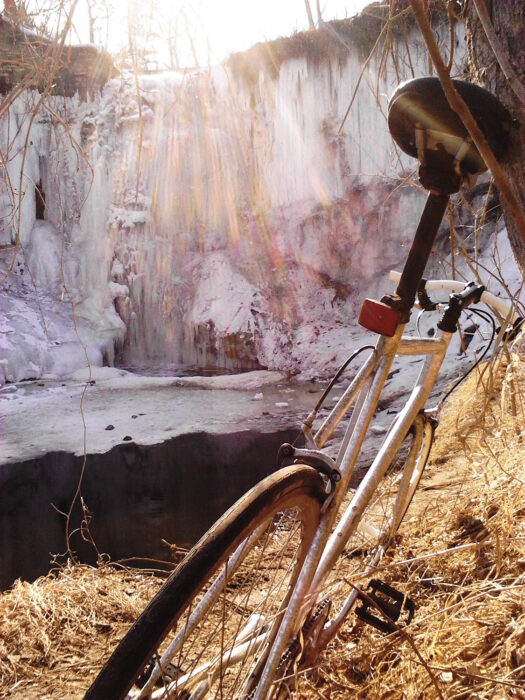
That first blissful ride happened in 2011. Since then, my love and gratitude for that machine has only grown. Like an ornery, bucking bronco, that fixed hub taught me how to really ride and respect a bike. It’s no easy task and requires commitment and courage in equal measure to master. A fixed gear is far less forgiving than its freewheel counterparts; it prefers to go fast and links you to its motion more intimately. You’re far more vulnerable on a fixed gear since it commands your unwavering attention and affords a smaller margin of error.
But when you get it — when you learn to embrace that connection with the speed and the ride — there’s no substitute. It forces you to become a better, more in-tune rider. Let me be clear: This is not some hipster manifesto on the purity of no-brake, devil-may-care, fixed-gear riding. I have a front brake, and I wear a helmet on every ride. Not only is it common-sense safety, but I think it looks cool too.
But by its very nature, this $400 fixie leveled up my already abundant enjoyment and appreciation for riding.
(Even if a cheap fixie isn’t for you, you can still check out our picks for the best road bikes under $1,000)
Through Good Times and Bad
Don’t misunderstand. While I’ve had more fun rides than I can count, I’ve had my fair share of bad ones as well. And in some ways, they’ve proven every bit as valuable. Failed track stands, steep curbs, and sneaky patches of sand at the bottom of too-steep hills have all conspired to put the rubber side up (and the Adam side down). The cheap fixie and I have even been rear-ended by a city bus. (I do not recommend it.)
The beauty in these mishaps is twofold: It forced me to become a more cautious, skilled, and attentive rider; and it proved the wonders of steel. Carbon and titanium are amazing ultralight materials, but they’re as expensive to fix as they are to buy. Steel, by comparison, is heavy, tough, forgiving, and cheap.
I’ve cold-set chainstays, retouched scratched paint, and even used JB Weld to fill dents. More expensive bikes would require more skilled and expensive fixes. Meanwhile, this Swobo runs as well as it did on day one, albeit with some battle scars, and its repair costs have been in the double digits.
That’s not to say I haven’t put money into the bike; quite the opposite. In the 13 years I’ve owned it, I’ve upgraded handlebars, wheelsets, and cranksets, fixed spokes, replaced bottom brackets, slapped on new chains, and swapped in new hubs. None of that has been free, but because the risks to the bike are so low and my dependence on it so high, I’ve committed to taking on as much of the bike’s routine care as possible.
I’ve made mistakes along the way. But the bike has less monetary risk tied to those mistakes, so it frees me to try, learn, and improve.
Ride or Die
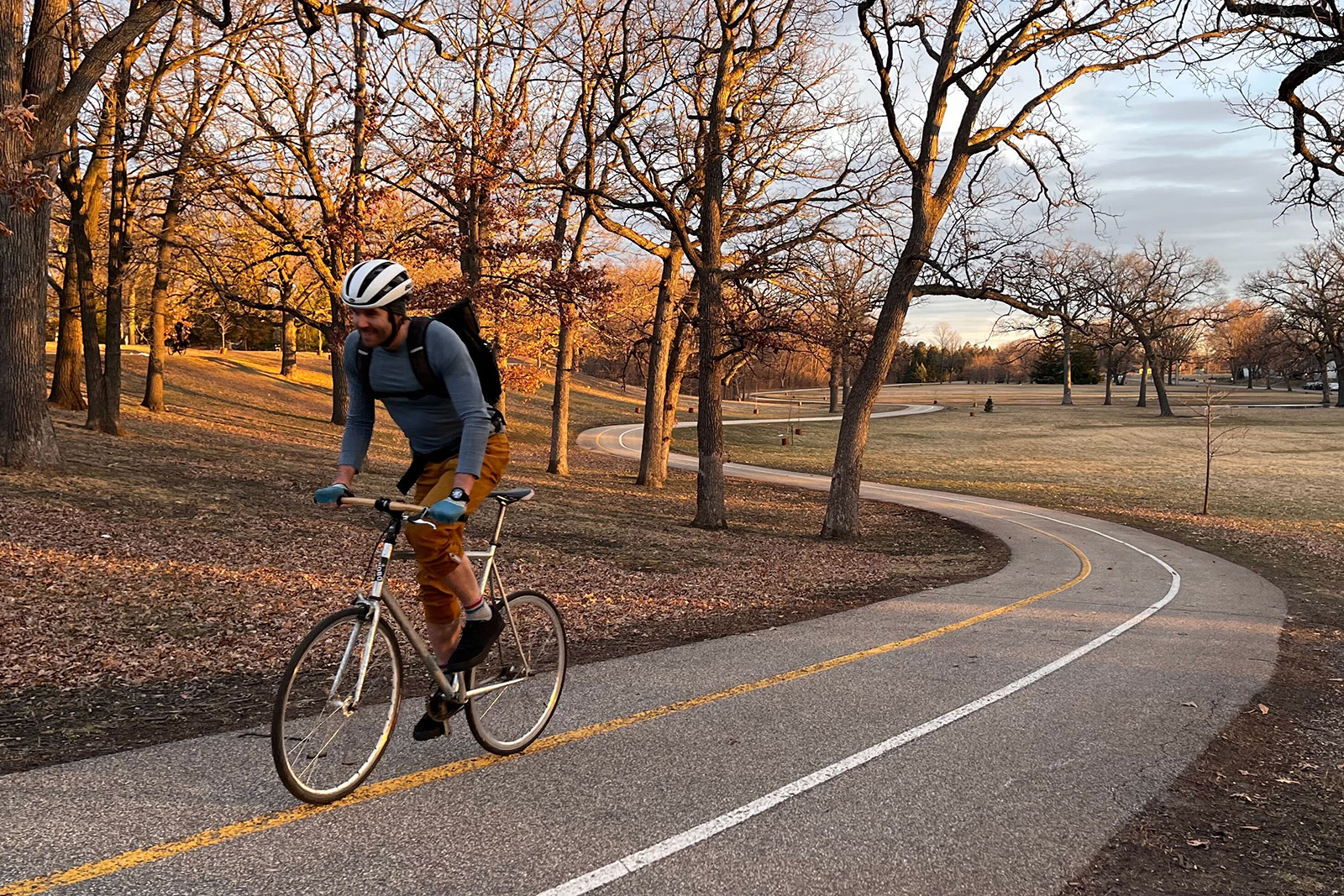
The number of days I’ve hopped in the saddle and pedaled this bike in the last 13 years outnumber the days that I have not. And that’s not in spite of its cost — in some ways, it’s very much because of it. It’s as at home in the rain as in the sun. Lay it on its side at the beach or lock it to a street sign at happy hour. It’s equal parts grocery-getter, work commuter, and rat racer.
This $400 weathered fixie — often dubbed the “Mad Max” bike by my friends — is not better than a $10,000 Trek Madone. But for me, it has been infinitely more valuable.
Whatever gear you own, its value will never be measured by what you paid for it, nor in the opinions of anyone but yourself. The real value comes from the time and experiences it creates.
